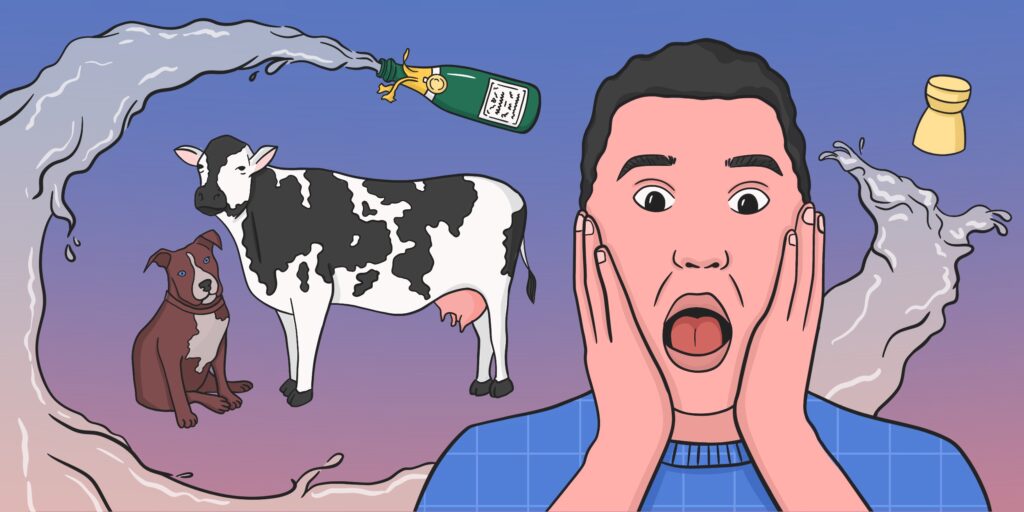5. Mosquitoes
These insects are considered by most people to be annoying, but generally not dangerous. When a small child is afraid of injections, he is even reassured with the phrase “like a mosquito bites”. But in fact, these bloodsuckers are ferocious predators, which can be called without exaggeration the most dangerous living creatures in the world.
The Bill Gates Foundation estimates that mosquito-borne diseases kill 725,000 people a year. By comparison, on average, humans themselves commit about 475,000 domestic murders in the same time period.
All in all, mosquitoes clearly demonstrate who the dominant species on our planet is.
Most of these insects are vegetarians, but their females drink blood while carrying and laying eggs to get the protein they need. In doing so, they carry fever, malaria, lymphatic filariasis, dengue virus, equine encephalitis virus (don’t be fooled, people die from it too), Zika virus, and many other horrible and potentially fatal diseases.
And your pets, for example, mosquitoes can reward your pets with the so-called “heartworm” – an ascarid that affects the heart and pulmonary artery and causes congestive heart failure.
In general, buy repellent and fight the bloodsuckers wherever you encounter them.
6. Dogs
Which predator do you encounter most often? A bear, a lion or a wolf? No, the common dog. For 12,000 years, dogs have been our protectors, companions, hunting partners and so on. But despite our friendship, sometimes they cause human death.
It is known that in the United States alone, 30 to 50 people die every year from dog attacks. According to statistics, the most dangerous breed is the pit bull, then – mongrel mongrels, in third place – German shepherds. And all of them are capable of causing very serious injuries to people.
In addition, dogs can transmit different diseases to people. They are the main transmitter of rabies to humans in the world. Between 3 and 18% of dog bite wounds become infected, leading to meningitis, endocarditis or septic shock.
Even if your dog is perfectly friendly but unhealthy, he can give you brucellosis, campylobacteriosis, tapeworms, echinococcus, giardiasis, methicillin-resistant Staphylococcus aureus, ringworm, salmonella, scabies and ticks.
To avoid all of these, keep a close eye on your dog’s health and don’t neglect vet check-ups. Wash your hands and face after interacting with your pet, especially if he likes to lick you. Don’t let your dog eat what he picks up on the street or fight with other dogs. And be careful when you meet unfamiliar animals.
